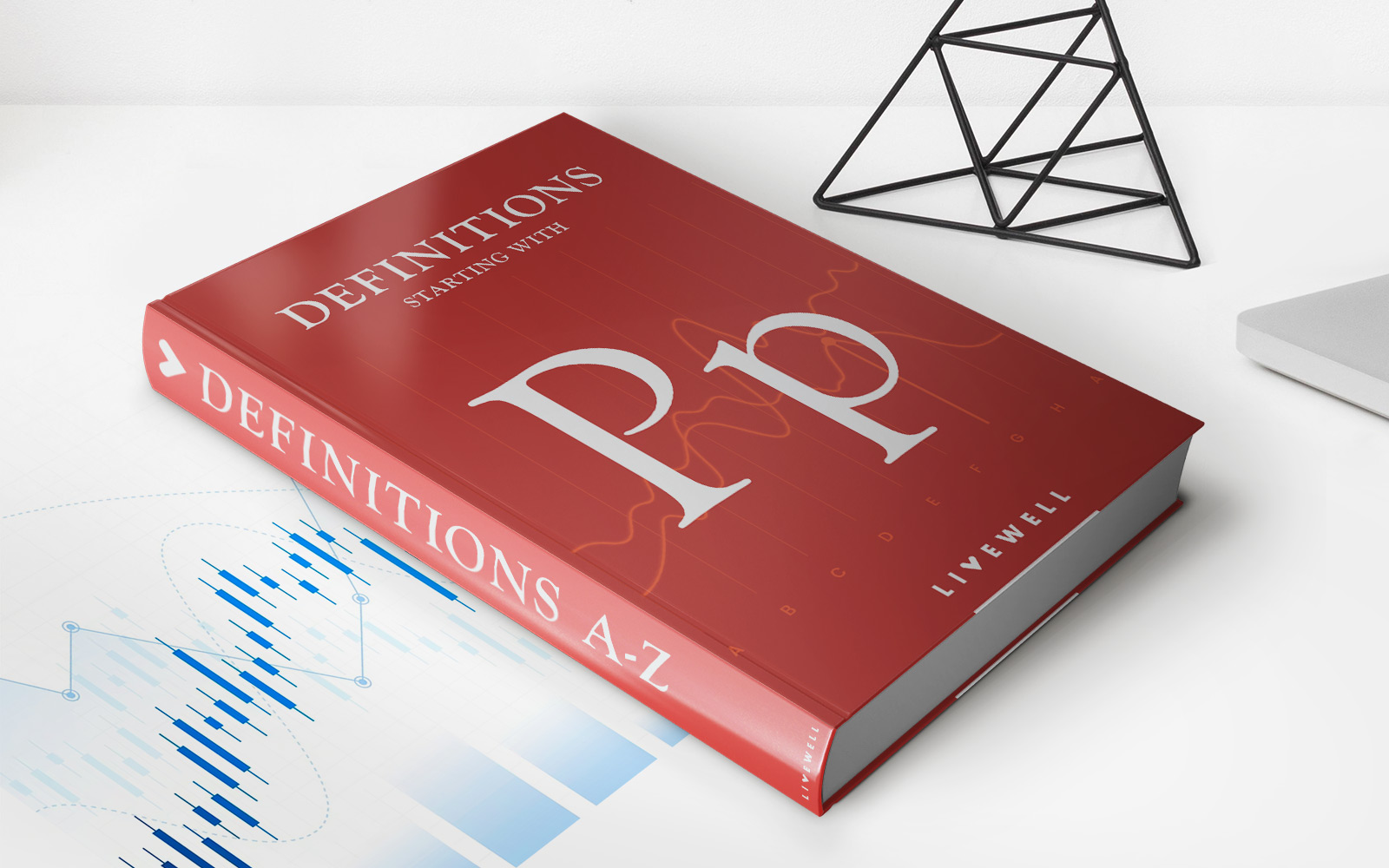

Finance
What To Ask Your Financial Advisor Each Year
Modified: December 30, 2023
Make sure you're asking your financial advisor the right questions every year. Get expert advice on finance and make the most of your investments.
(Many of the links in this article redirect to a specific reviewed product. Your purchase of these products through affiliate links helps to generate commission for LiveWell, at no extra cost. Learn more)
Table of Contents
- Introduction
- Review of Financial Goals
- Evaluation of Investment Performance
- Assessment of Risk Tolerance
- Analysis of Financial Plan and Portfolio
- Examination of Tax Strategies
- Consideration of Retirement Planning
- Discussion of Estate Planning
- Examination of Insurance Coverage
- Evaluation of Fee Structure and Costs
- Collaboration on Any Life Changes or Significant Events
- Conclusion
Introduction
When it comes to managing your finances, it’s crucial to have a trusted partner who can guide you through your money matters. A financial advisor plays a significant role in helping you make informed decisions about investments, retirement planning, tax strategies, and more. However, it’s essential to have regular check-ins with your advisor to ensure that your financial goals are being met and any adjustments can be made along the way.
In this article, we will discuss the importance of annual reviews with your financial advisor and the key questions you should ask during these meetings. By having proactive conversations with your advisor, you can gain a better understanding of your financial situation, make necessary changes, and stay on track to reach your financial objectives.
Financial planning is a dynamic process that evolves over time, just like your personal or professional life. Annual reviews provide an opportunity to reassess your financial goals, evaluate your investment performance, and ensure that your financial plan aligns with your changing circumstances.
Now, let’s take a closer look at the questions you should ask your financial advisor during your yearly check-ins to maximize the benefits of your financial planning journey.
Review of Financial Goals
One of the most critical aspects of your annual review with your financial advisor is to assess and review your financial goals. Your goals may have changed over the past year due to various circumstances, such as a career change, marriage, starting a family, or nearing retirement. It’s important to ensure that your financial plan is aligned with your current objectives.
During your meeting, discuss any significant life changes that have occurred since your last review and how they may impact your financial goals. Your financial advisor can then help you identify any adjustments or new strategies required to ensure your plan remains on track.
It’s also essential to evaluate the progress you’ve made towards achieving your goals. Your financial advisor can provide you with an overview of your investment performance and how it aligns with your objectives. If you have fallen behind or are exceeding expectations, your advisor can help you make necessary portfolio adjustments to keep you on target.
Make sure to communicate any new goals or aspirations that you may have developed since your last review. Your advisor can help you integrate these goals into your financial plan and provide guidance on the best approach to achieve them.
Remember, a thorough review of your financial goals is a crucial step in the annual review process. By reassessing and adjusting your objectives as needed, you can maintain financial stability, make progress towards your dreams, and ensure that you are on track to meet your long-term goals.
Evaluation of Investment Performance
During your annual review with your financial advisor, it is important to thoroughly evaluate the performance of your investments. This allows you to gauge if your portfolio is meeting your expectations and if any adjustments need to be made.
Your financial advisor will provide you with a comprehensive analysis of your investment performance over the past year. They will review your portfolio’s returns, compare it to relevant benchmarks, and identify any areas of strength or weakness.
It is essential to understand that investment performance can fluctuate from year to year. Markets go through cycles, and it’s natural to experience both positive and negative returns. Your financial advisor can help you interpret the performance data in the context of market conditions and your long-term goals.
During the evaluation, consider the following questions to discuss with your advisor:
- Are my investments performing in line with my expectations and risk tolerance?
- What is the overall returns of my portfolio?
- Are there any specific investments that are underperforming?
- What changes or adjustments can be made to improve my investment performance?
Your financial advisor will provide insights and recommendations based on their expertise. They may suggest rebalancing your portfolio, diversifying your investments, or exploring new opportunities that align with your risk tolerance and goals.
Additionally, your advisor may discuss the fees and expenses associated with your investments. Understanding the costs is important to ensure they are reasonable and do not erode your returns over time. Your advisor can provide transparency on the fees and help you assess if any adjustments need to be made to optimize your investment performance.
Remember, the evaluation of your investment performance is an essential part of your annual review. By assessing how your investments are performing and making any necessary adjustments, you can maximize your portfolio’s potential and stay on track towards achieving your financial objectives.
Assessment of Risk Tolerance
Understanding your risk tolerance is a crucial aspect of your financial planning journey. Risk tolerance refers to your ability and willingness to endure fluctuations in the value of your investments. During your annual review with your financial advisor, it is vital to reassess your risk tolerance to ensure that your investments align with your comfort level.
Market conditions and personal circumstances can impact your risk tolerance over time. For example, a significant life event or a change in financial goals may cause you to become more conservative or more aggressive in your investment approach.
Your financial advisor will work with you to evaluate your risk tolerance by considering various factors:
- Time horizon: How long do you have until you need to access the invested funds?
- Financial goals: What are your short-term and long-term financial objectives?
- Income stability: Is your income stable or do you have a variable income?
- Emotional resilience: How do you respond to market fluctuations or volatility?
Based on the assessment, your financial advisor will help determine an appropriate asset allocation strategy that aligns with your risk tolerance. This may involve adjusting the mix of equities, bonds, cash, and other investment vehicles within your portfolio.
It is crucial to have an open and honest discussion with your advisor about your risk tolerance. By understanding your comfort level and investing accordingly, you can have peace of mind and avoid unnecessary stress when it comes to market fluctuations.
Keep in mind that risk tolerance can evolve over time. As your financial situation and goals change, it’s important to reassess your risk tolerance during each annual review. This ensures that your investment strategy remains aligned with your needs and objectives.
Remember, assessing your risk tolerance is a critical component of your financial planning process. By understanding your comfort level with risk and making necessary adjustments, you can build a resilient investment portfolio that aligns with your financial goals.
Analysis of Financial Plan and Portfolio
During your annual review with your financial advisor, it is essential to conduct a comprehensive analysis of your financial plan and portfolio. This evaluation allows you to assess the overall effectiveness of your plan and make any necessary adjustments to keep you on track towards achieving your goals.
Your financial advisor will review your current financial plan and portfolio to determine if any changes need to be made. They will assess how well your plan aligns with your financial goals, risk tolerance, and timeline. Additionally, they will analyze the individual components of your portfolio, such as investments, asset allocation, and diversification.
Some key questions to discuss with your advisor during this analysis include:
- Is my financial plan still aligned with my goals and objectives?
- Is my asset allocation strategy appropriate given my risk tolerance?
- Does my portfolio need to be rebalanced to maintain diversification?
- Are there any changes in my financial circumstances that require adjustments to my plan?
Your financial advisor will provide recommendations and strategies based on the analysis of your financial plan and portfolio. They may suggest changes to your investment mix, reallocation of assets, or adjustments to your savings and spending habits.
Moreover, the analysis will also assess the tax implications of your current plan. Your advisor will evaluate if there are any tax planning opportunities you can take advantage of to optimize your financial situation. This includes strategies to minimize tax liabilities and maximize tax-efficient investments.
By thoroughly analyzing your financial plan and portfolio, you can ensure that your plan is relevant and effective in helping you reach your financial goals. Regular assessments allow you and your advisor to proactively make adjustments that align with changes in your life, market conditions, and financial landscape.
Remember, the analysis of your financial plan and portfolio is a crucial step in your annual review. By taking the time to evaluate and make necessary adjustments, you can maintain an optimized strategy that supports your financial well-being.
Examination of Tax Strategies
One important aspect of your annual review with your financial advisor is the examination of your tax strategies. Taxes can significantly impact your overall financial well-being, and it’s crucial to explore opportunities for tax optimization.
Your financial advisor will review your current tax situation and identify potential tax planning strategies that can help reduce your tax liabilities. This may include deductions, credits, and tax-efficient investment strategies.
During the examination of tax strategies, your advisor will consider various factors:
- Income sources: Reviewing your different sources of income and identifying ways to minimize tax burdens.
- Retirement accounts: Assessing contributions to retirement accounts such as 401(k)s or IRAs and determining if you are maximizing the available tax benefits.
- Capital gains and losses: Analyzing investment gains and losses and strategizing around tax implications to minimize liabilities.
- Charitable giving: Exploring opportunities for tax advantages through charitable contributions.
- Estate planning: Reviewing your estate planning strategies to minimize potential estate taxes.
Your financial advisor will work closely with you to understand your specific tax situation and provide tailored recommendations. They will help you take advantage of available tax benefits while staying compliant with tax laws and regulations.
It’s crucial to communicate any changes in your financial circumstances or goals that may impact your tax situation. Significant life events such as marriage, divorce, or the birth of a child can have tax implications, and your advisor can help you navigate these changes effectively.
Stay proactive in discussing your tax strategies with your advisor, as tax laws can change annually. By regularly examining your tax situation and implementing effective strategies, you can potentially minimize your tax burden and keep more of your hard-earned money.
Remember, the examination of tax strategies is a vital part of your annual review. By working with your financial advisor to optimize your tax situation, you can ensure that you are maximizing your financial resources and achieving your goals more efficiently.
Consideration of Retirement Planning
As part of your annual review with your financial advisor, it is crucial to consider your retirement planning. Retirement is a significant financial goal for many individuals, and it’s important to ensure that you are on track to achieve a comfortable retirement lifestyle.
Your financial advisor will assess your current retirement savings and projected income needs throughout your retirement years. They will help you determine if you are saving enough and utilizing the right retirement vehicles, such as retirement accounts (e.g., 401(k), IRA), to meet your goals.
During this review, it’s important to discuss the following aspects:
- Retirement savings: Evaluate the progress you’ve made towards your retirement savings goals and discuss any necessary adjustments to increase your contributions.
- Risk tolerance: Assess your risk tolerance in terms of your retirement investments. Determine if your investment strategy aligns with your timeline and comfort level.
- Income sources: Review your expected income sources in retirement, including social security benefits, pensions, and investment earnings. Identify any potential gaps or areas for improvement.
- Withdrawal strategy: Discuss your withdrawal strategy and the most tax-efficient ways to utilize your retirement savings during your retirement years.
- Longevity and healthcare: Consider the potential financial impact of a longer life expectancy and the cost of healthcare during retirement. Explore strategies to mitigate these risks.
Your financial advisor can help you create a personalized retirement plan that takes into account various factors such as your desired retirement age, lifestyle goals, and risk tolerance. They can also assist with estimating your retirement income needs and adjusting your savings and investment strategies accordingly.
Regular review of your retirement plan ensures that you are on track and can make any necessary adjustments to stay aligned with your goals. This may include increasing your retirement contributions, exploring additional investment options, or making changes to your asset allocation.
By regularly considering your retirement planning, working closely with your financial advisor, and making necessary adjustments, you can increase your chances of achieving a secure and fulfilling retirement.
Remember, retirement planning is an ongoing process, and your annual review is the perfect opportunity to assess your progress and make any necessary adjustments. By staying proactive and informed, you can work towards a comfortable and financially secure retirement.
Discussion of Estate Planning
During your annual review with your financial advisor, it is essential to have a discussion about estate planning. Estate planning involves creating a plan for the distribution of your assets and the management of your affairs after your passing. This process ensures that your wishes are carried out and that your loved ones are protected.
Your financial advisor will review your current estate plan, including any wills, trusts, powers of attorney, and healthcare directives. They will help you assess whether your plan accurately reflects your current wishes and if any updates or modifications are necessary.
Key elements to discuss during the estate planning discussion include:
- Beneficiary designations: Review who is listed as beneficiaries on your various accounts, such as retirement plans, life insurance policies, and investment accounts. Determine if any changes or updates need to be made.
- Guardianship: If you have minor children, discuss who would assume guardianship and responsibility for their care in the event of your passing.
- Asset distribution: Review your intended asset distribution plan and ensure that it aligns with your current wishes and the needs of your beneficiaries.
- Tax implications: Evaluate the potential tax implications of your estate plan, including estate taxes and inheritance taxes. Explore strategies to minimize these tax obligations.
- Charitable giving: Discuss any charitable intentions you have and explore options for incorporating philanthropy into your estate plan.
Your financial advisor can work with you to ensure that your estate plan is comprehensive and up to date. They may collaborate with other professionals such as estate attorneys or tax specialists to provide a holistic approach to your estate planning needs.
Remember, estate planning is not just about the distribution of assets after your passing. It is also about ensuring that your loved ones are taken care of, minimizing potential disputes, and addressing any unique circumstances or considerations.
Regularly discussing and reviewing your estate plan with your financial advisor helps to ensure that it remains relevant and aligned with your wishes. It provides peace of mind knowing that you have taken the necessary steps to protect your assets and provide for your loved ones in the future.
Keep in mind that estate planning is a complex process, and laws regarding wills, trusts, and taxes can vary. It is advisable to work with professionals experienced in this area to ensure that your estate plan is legally sound and meets your individual needs and objectives.
Examination of Insurance Coverage
As part of your annual review with your financial advisor, it is important to examine your insurance coverage to ensure you have adequate protection for yourself and your loved ones. Insurance plays a vital role in managing risk and providing financial security in times of unforeseen circumstances.
Your financial advisor will review your existing insurance policies and assess whether they still meet your needs and align with your current financial situation. This examination typically includes the following types of insurance coverage:
- Life Insurance: Review your life insurance policies to determine if the coverage amount is sufficient to protect your loved ones in the event of your passing. Consider factors such as mortgage, debts, and the financial needs of your dependents.
- Health Insurance: Evaluate your health insurance coverage, including the type of plan, premium costs, and coverage limitations. Determine if your current plan adequately meets your healthcare needs and if any changes should be made.
- Disability Insurance: Assess your disability insurance coverage to ensure it provides adequate income protection in the event of a disability that prevents you from working. Consider factors like your income, savings, and the impact of a loss of income on your financial stability.
- Auto and Home Insurance: Review your auto and home insurance policies to confirm that you have the appropriate coverage for your vehicles and property. Consider factors such as the value of your assets and the potential risks you may face.
- Umbrella Insurance: Discuss the need for umbrella insurance, which provides additional liability coverage beyond the limits of your other insurance policies. Determine if this extra layer of protection is necessary based on your assets and potential risks.
During the examination of insurance coverage, it is important to discuss any significant changes that may have occurred in your life, such as marriage, divorce, the birth of a child, or the purchase of a new home or vehicle. These changes may impact your insurance needs and require adjustments to your coverage.
Your financial advisor can offer guidance on the types and amounts of insurance coverage that are recommended for your specific situation. They may also provide recommendations on insurance providers or help you navigate the complexities of insurance policies and terms.
Remember, insurance coverage is an essential component of your overall financial plan. Regularly examining and updating your policies ensures that you are adequately protected against potential risks and provides peace of mind for you and your loved ones.
Note that insurance requirements and coverage options can vary depending on your location and individual circumstances. It is advisable to consult with an insurance professional to ensure that you have the appropriate coverage for your specific needs.
Evaluation of Fee Structure and Costs
As part of your annual review with your financial advisor, it is crucial to evaluate the fee structure and costs associated with your financial plan and investment accounts. Understanding the fees you are paying and their impact on your investments is essential for maximizing your returns and overall financial well-being.
Your financial advisor will provide you with a breakdown of the fees associated with your investment accounts, such as advisory fees, management fees, and transaction costs. They will explain how these fees are determined and how they are impacting your investment performance.
During the evaluation, consider the following elements:
- Advisory Fees: Review the fees you are paying for the services provided by your financial advisor. Understand the structure of these fees, whether they are based on a percentage of assets under management or a flat fee.
- Management Fees: Assess the fees associated with investment management, such as mutual fund expense ratios or ETF expense ratios. Analyze how these fees impact your investment returns over time.
- Transaction Costs: Evaluate the costs incurred when buying or selling investments within your portfolio. Discuss the frequency of transactions and their impact on your overall investment performance.
- Other Costs: Consider additional costs such as custodial fees, administrative fees, or account maintenance fees. Understand their purpose and impact on your financial plan.
During the evaluation, compare the fees you are paying with industry benchmarks and similar investment options. This allows you to determine if the costs are reasonable and if any adjustments should be considered.
Your financial advisor can provide insights into the value they bring to your financial planning and whether the fees are justifiable based on the services and expertise they provide. They may also discuss alternative investment options that may have lower fees or offer additional benefits.
Remember that fees and costs directly impact your investment returns. Even small differences in fees can have a significant impact on your long-term wealth accumulation. Regularly evaluating and negotiating these costs can potentially save you money and improve your investment performance.
Be sure to have an open and transparent conversation with your financial advisor about the fee structure and costs associated with your financial plan. By understanding and optimizing your fee structure, you can enhance the value you receive from your investments and work towards achieving your financial goals more efficiently.
Collaboration on Any Life Changes or Significant Events
Life is full of changes and significant events that can have a profound impact on your financial situation. As part of your annual review with your financial advisor, it is crucial to collaborate and discuss any life changes or significant events that have occurred over the past year.
These changes could include, but are not limited to, the following:
- Marriage or Divorce: Discuss the financial implications of a new marriage or the changes resulting from a divorce. Review joint accounts, beneficiary designations, and the overall impact on your financial goals.
- Birth or Adoption: Evaluate the financial impact of expanding your family. Discuss college savings plans, potential adjustments to your insurance coverage, and the need to update your estate plan.
- Career Changes: Assess the impact of switching jobs, receiving a promotion, or starting a new business. Explore adjustments to your retirement contributions, investment strategies, and income protection.
- Relocation: Discuss the financial implications of relocating to a new city or country. Evaluate housing costs, tax considerations, and potential adjustments to your budget or investment strategy.
- Inheritance or Windfall: Collaborate on managing unexpected wealth. Discuss investment options, tax implications, and strategies for preserving and growing your newfound assets.
- Health Issues: Review the financial impact of any health-related events or diagnoses. Discuss health insurance coverage, potential medical expenses, and the need to update your estate plan and healthcare directives.
Collaborating with your financial advisor on these life changes and significant events allows them to provide tailored guidance and support. They can help you navigate the financial complexities of these transitions and ensure your financial plan remains aligned with your goals.
It is essential to have open and honest communication with your advisor during these discussions. Share any concerns, fears, or aspirations you may have related to these life changes. Your advisor can provide guidance, reassurance, and practical strategies to help you navigate these transitions successfully.
Remember, your financial advisor is here to support you through various life events and significant milestones. By collaborating and involving them in the planning process, you can make informed financial decisions and adapt your strategies to accommodate the changes in your life.
Regular communication with your financial advisor beyond the annual review is also crucial, especially when unexpected events occur. Keeping them informed of any life changes, and reaching out when you have questions or concerns, ensures that your financial plan remains flexible and responsive to your evolving needs.
Conclusion
Your annual review with your financial advisor is a strategic and important step in securing your financial future. By engaging in open and proactive discussions, you can address key areas of your financial planning and make necessary adjustments to stay on track towards achieving your goals.
During the annual review, consider discussing various aspects such as reviewing your financial goals, evaluating investment performance, assessing risk tolerance, analyzing your financial plan and portfolio, examining tax strategies, considering retirement planning, discussing estate planning, evaluating insurance coverage, assessing fee structure and costs, and collaborating on any life changes or significant events.
By regularly reviewing these areas, you can ensure that your financial plan remains relevant, effective, and aligned with your changing circumstances and objectives.
Your financial advisor is a valuable resource, providing expertise, guidance, and support throughout your financial journey. They can help you navigate complex financial decisions, provide insights into market trends, and offer strategies to optimize your investments and overall financial well-being.
Remember to actively engage in these annual reviews and maintain open lines of communication with your financial advisor throughout the year. Life is dynamic, and your financial plan should adapt to changes and reflect your evolving goals and needs.
With the guidance of a knowledgeable financial advisor and the commitment to regular reviews, you can stay on the path towards financial success, peace of mind, and ultimately achieve your long-term financial aspirations.














